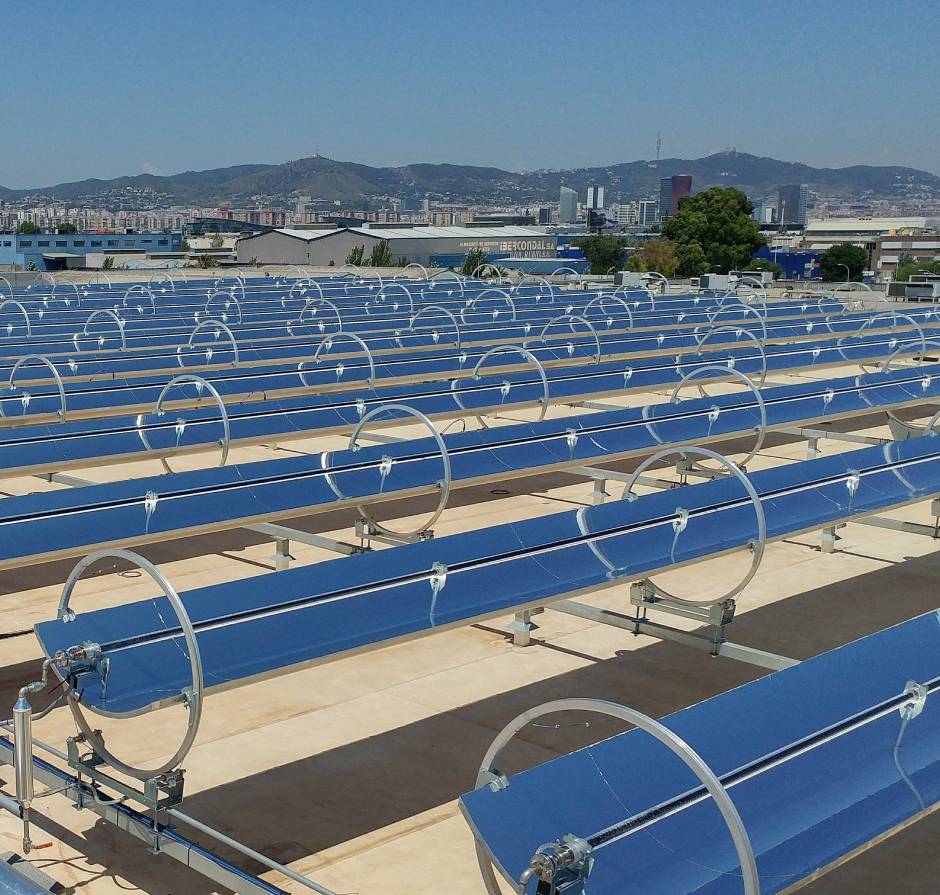Industrial Solar Heaters
And related technologies
And related technologies
It's a game of numbers and we know it... We began monitoring the energy production of our installations in 2017. After making adjustments during the first three years and facing a slowdown in activities due to the pandemic, we achieved steady production in 2021. While our current output remains modest, we anticipate significant growth in both production and its associated value in the coming years.
Join us in driving the adoption of solar energy solutions for the industries shaping tomorrow's world. We've developed three tailored programs to collaborate — whether you're looking to own a solar installation, invest in solar thermal deployment, or host a solar field on your site.

Your business makes use of a lot of heat and you're looking for a cleaner and cheaper heat making machine

Your organisation is looking for investment opportunities that will also make the world cleaner

You have space at your disposal and would like to make good use of it by producing solar heat
Many industrial processes can benefit from solar heaters to reduce fuel consumption and stabilize fuel costs. By harnessing solar energy, businesses can lower their reliance on traditional fuel sources, improving both efficiency and sustainability. To estimate the potential savings for your specific situation, follow the link on top.
| DNI | LCOE 10 y | LCOE 20 y |
|---|---|---|
| W/m2 | $/kWh | $/kWh |
| 1000 | 0.090 | 0.045 |
| 1200 | 0.075 | 0.037 |
| 1400 | 0.064 | 0.032 |
| 1600 | 0.056 | 0.028 |
| 1800 | 0.050 | 0.025 |
| 2000 | 0.045 | 0.022 |
| 2200 | 0.041 | 0.020 |
| 2400 | 0.037 | 0.019 |
The levelized cost of heat (LCOH) represents the average cost of generating heat over the lifetime of a system, taking into account capital, operation, and maintenance costs. The graph above illustrates the LCOH achievable with a Rackam solar heater optimized for 10- and 20-year lifespans, across varying levels of solar resource (DNI). As shown, Rackam systems offer highly competitive heating costs in most scenarios.